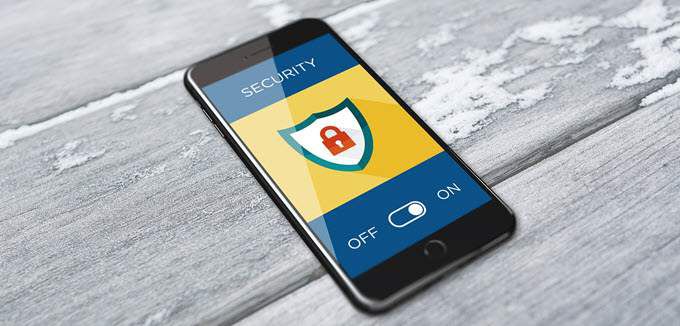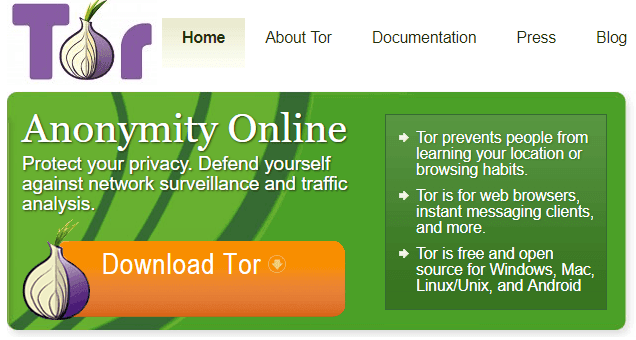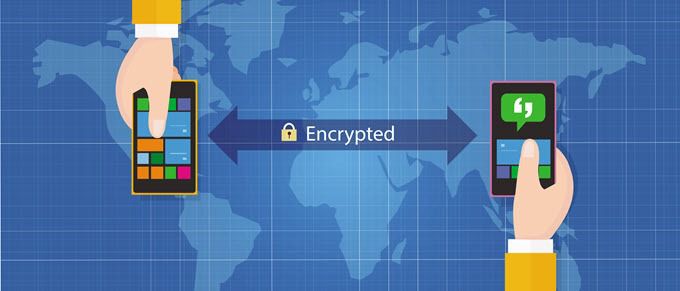We use dozens of online services and applications every day to send and receive emails and text messages, make video calls, read news and watch videos online, and more. And it's incredibly hard to track and secure the crazy amount of data we produce and consume every day.
And in case you think, I have nothing to hide, you're wrong. Every piece of data you release on the web and no security can be used against you. In the wrong hands, those data points can be collected and correlated to create a digital record, which can then be used to perform fraudulent, spoofed and deceptive acts against. friend.

Your digital profile may also be used to invade your privacy in nasty and creepy ways such as showing you personalized ads based on the closest information and interests. your.
However, it's never too early to start protecting your digital information from unwanted eyes. In this regard, your best friend is coding, the science of data tampering with math. Encryption ensures that only intended users can read your data. The unauthorized parties that access your data will see nothing but a series of unencryptable bytes.
Here, how you can encrypt all the data you store on your device and in the cloud.
Encrypt data on your device
First, the easy part. You should start by encrypting the data you hold. This includes content you store on laptops, desktops, smartphones, tablets, and portable drives. If you lose your device, you risk putting sensitive information in the wrong hands.
The safest way to encrypt data on your device is full disk encryption (FDE). FDE encrypts everything on the device and only provides data to use after the user provides a password or PIN.
Most operating systems support FDE. In Windows, you can use BitLocker to enable full disk encryption on the PC. In macOS, whole disk encryption is called FileVault. You can read our step by step guide on how to use BitLocker and FileVault.
Windows BitLocker also supports encrypting external drives such as memory cards and USB drives. On macOS, you can use Disk Utility to Create an encrypted USB drive.
Alternatively, you can try hardware encryption devices. Hardware-encrypted drives require users to enter a PIN on the device before plugging it into the computer. Encrypted drives are more expensive than their unencrypted counterparts, but they are also more secure.

You should also encrypt your mobile devices. Encryption on the device will ensure that an unauthorized person gains access to your phone data, even if they have physical access to it. Both iOS and Android support full disk encryption. All Apple devices running iOS 8.0 and above Encrypted by default. We suggest you leave it that way.
The Android landscape is a bit fragmented due to the default OS settings and interface that may vary based on the manufacturer and OS versions. Guaranteed check Your is encrypted.
Encrypt your data on cloud
We rely on cloud storage services like Google Drive, DropBox and Microsoft OneDrive to store our files and share them with friends and colleagues. But while those services do a good job of protecting your data from unauthorized access, they still have access to the content of the files you store in their cloud services. They can also protect you if your account is compromised.

If you're not comfortable with Google or Microsoft having access to your sensitive files, you can use one Cryptocurrencies. Boxcryptor integrates with most popular hosting services and adds an encryption layer to protect your files before uploading them to the cloud. This way, you can ensure that only you and the people you share your file with will know about their content.
Alternatively, you can use end-to-end encrypted storage services (E2EE), such as Tresorite. Before storing your files in the cloud, E2EE storage services encrypt your files with keys that you keep private and not even your file storage service can access content. of them.
Encrypt your Internet traffic
Perhaps just as important as encrypting your files is encrypting your internet traffic. Your internet service provider (ISP) is a malicious actor who can hide on the public Wi-Fi network you are using, will be able to eavesdrop on the websites you browse and services and applications. you use. They can use that information to sell to advertisers or, in the case of hackers, use that information against you.
To protect your internet traffic against malicious and malicious parties, you can sign up Virtual private network (VPN). When you use a VPN, all your internet traffic is encrypted and routed through the VPN server before reaching its fate.
If a malicious agent (or your ISP) decides to monitor your traffic, all they will see is an encrypted data stream exchanged between you and your VPN server. They have won and are able to find out which websites and applications you are using.

One thing to consider is that your VPN provider will still be fully visible on your internet traffic. If you want absolute privacy, you can use it Onion Router (Tor). Tor, both the name of the darknet network and the browser name, encrypts your internet traffic and returns it through a number of independent computers running specialized software.

No computer in the Tor network has complete knowledge of the source and destination of your internet traffic, which gives you complete privacy. However, Tor comes with a significant speed penalty and many websites block traffic coming from the Tor network.
Encrypt your email
I guess I don't need to tell you the importance of protecting your email. Just asking John Podesta, leaked emails could leave his boss a chance to be president. Encrypting your email can protect your sensitive communications against people with unwanted access to them. This could be a hacker breaking into your account or your email provider.
To encrypt your email you can use ProtonMail. ProtonMail encrypts your email without any additional steps. Unlike services like Gmail and Outlook.com, ProtonMail win can read your email content.
Encrypt your message
Messaging has become an integral part of our lives. There are dozens of messaging services you can use to get in touch with family, friends and colleagues. But they offer different levels of security.
Ideally, you should use encrypted end-to-end messaging service. Today, most popular messaging services offer end-to-end encryption. Some examples include WhatsApp, Signal, Telegram, Viber and Wickr.

However, those who activate E2EE by default will be more secure. WhatsApp, Signal and Wickr allow terminal encryption by default.
In addition, messaging services based on open source protocols are more reliable because they can be peer reviewed by independent industry experts. Signal Protocol, E2EE technology that supports WhatsApp and Signal, is an open source protocol that has been endorsed by many security experts.


0 Comments